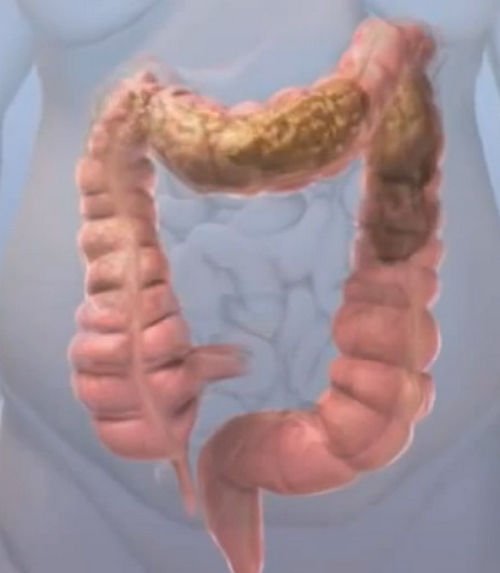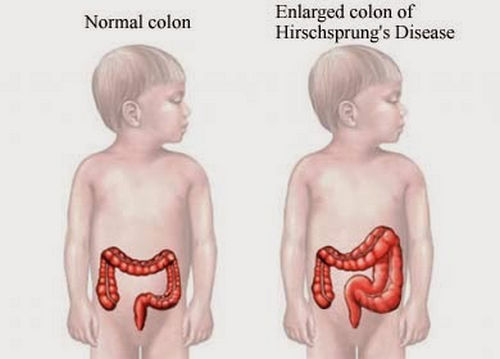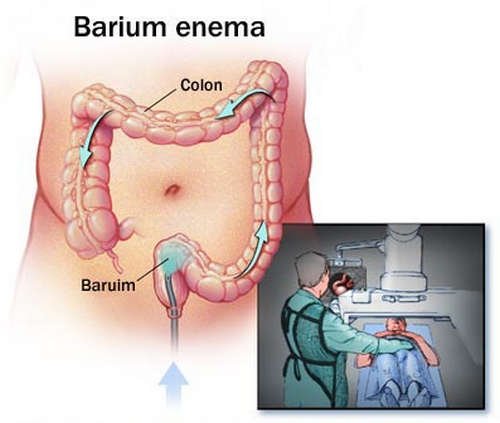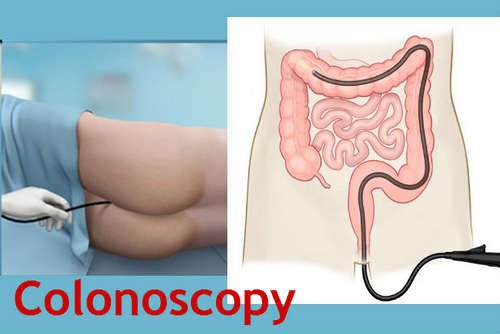Obstipation
Last reviewed by Dr. Raj MD on January 12th, 2022.
We are familiar with constipation but for sure only a few of us know what an obstipation is. What is obstipation?
Definition
It is a medical term used to describe someone who cannot pass a stool or gas. Some health care professionals call it obstructive constipation because an obstipation takes place if a person has severe constipation. If left untreated could lead to a serious health condition. (1, 2, 3)

Image 1: A closer look at an intestine with obstructed fecal matter.
Picture Source: usercontent1.hubstatic.com

Picture 2: Intense abdominal pain, discomfort, and bloating are some of the cardinal signs of obstipation.
Photo Source: safesymptoms.com
What is the difference between obstipation and constipation?
Obstipation is commonly mistaken for constipation. The two are not the same. Constipation pertains to difficulty passing stool because the stool is formed leading to a restricted bowel movement.
On the other hand, obstipation is not having any bowel movement at all. Sometimes, even passing of gas is absent. (2, 3)
Obstipation symptoms
- The abdomen is distended
- A feeling of bloating
- Dehydration
- Constipation and/or diarrhea
- Inability or difficulty passing gas
- Stomachache
- Nausea with or without vomiting
- Body weakness/a feeling that something is wrong with your body
- Feeling easily full (3, 4, 5)
Obstipation causes

Photo 3: Hirschsprung’s disease is one of the causes of obstipation.
Image Source: 2.bp.blogspot.com
There is a multitude of reasons why you are obstipated. These include the following:
- Intestinal problems – There could be something wrong in your intestines such as intussusception (a part of the intestine slides over another), inflammation of the intestines, the presence of polyps in the intestines, and intestinal tumor.
- Fecal impaction (dry and hard stool)
- Colorectal cancer
- Chronic constipation secondary to an underlying medical condition. A perfect example is Hirschsprung’s disease.
- Adhesions (severe scarring) secondary to surgery, especially those who underwent abdominal surgery.
- Hernia (an intestine bulges through the wall of the abdomen)
- Side effects of medications specifically opioid pain relievers like morphine, drugs that can slow down intestinal movements like diuretics, clonidine, antipsychotic medication, and calcium channel blockers. (4, 5, 6)
When should you call out for help?
If you are unable to pass stool or gas for several days and you are starting to feel pain and discomfort in your abdomen, then it is just high time to consult your doctor. On the other hand, if you already passed stool and you notice a discoloration, especially bloody or black stool, vomiting, abdominal distention, fever, and abdominal pain, then you need to go to the hospital. These are indicators of serious medical condition. (5, 7)
Diagnosis

Image 4: Barium enema is one of the diagnostic procedures used to detect the causes of obstipation.
Picture Source: www.mayoclinic.org

Picture 5: A patient undergoing a colonoscopy procedure.
Photo Source: healingoracle.ch
A medical history will be taken out to find out what could be the possible reasons for obstipation. The doctor will also conduct various tests and procedures to determine the root cause of obstipation. Parts of the diagnosis are the following:
- Digital examination of the rectum – The doctor will perform this test to check for impaction. If the patient is not impacted, then the doctor will proceed to other testing methods.
- Blood Test – It is done to check for any signs of infection.
- Imaging studies – If the doctor is suspecting abnormalities in the intestines, he will order an imaging study, which is usually comprised of an x-ray and CT scan.
- Bowel function test – It is done to check the condition of the muscles in the rectum. Sometimes a person can’t pass stool because the rectal muscles and nerves have abnormalities.
- Barium enema – A contrast is administered through the rectum so as to check for any abnormalities in the colon.
- Colonoscopy – The lining is visualized and checked for any signs of abnormalities. It is done by inserting a thin and lighted scope into the rectum. (7, 8, 9)
What are the possible complications?
Someone who experienced obstipation should not take it for granted, especially if it has been going on for a few days. Not passing stool on a regular basis can have a drastic effect on your health. It will not only jeopardize your health, it also puts your life on the line. If you are unable to pass stool for at least four days, then you need to consult your doctor as there is a possibility of bowel perforation. (2, 5, 8)
Obstipation treatment
There are various ways to treat obstipation. However, the treatment of choice primarily depends on the patient’s condition. In mild condition, the doctor will prescribe drugs that can soften the stool so that it could pass smoothly through the large intestines.
Some drugs can increase the intestinal movement thereby helping you get rid of stool at the soonest time possible. The doctor will also advise increasing your fluid intake to help the body in passing the stool the natural way.
If there are impactions and nothing of the steps mentioned above work, then the doctor will manually remove the stool through the opening of the rectum. With gloves on and with the aid of a lubricant, the doctor carefully inserts his fingers into the rectum and remove the stool. Once the obstruction in the opening of the rectum is removed, the stool can pass on without any difficulty. (2, 5, 9, 10)
When is surgery needed?
The doctor might perform a surgery just to get rid of fecal impaction. If there is damage in the intestines, it should be addressed. If the area of the intestine is damaged, it should be removed too. The necessity of surgery is based on the root cause of obstipation. (1, 2, 5)
What can you do to prevent obstipation?
- Carefully watch what you eat. Make sure you increase your intake of fiber-rich foods, especially fruits, vegetables, and whole grains.
- You should drink at least two to three liters of water every day.
- Exercise on a regular basis as it promotes peristaltic movement.
Natural remedies for obstipation - Foods play an important role in helping you pass stool naturally. Examples are almonds, oranges, apples, papaya, and green leafy vegetables.
- To relieve obstipation, you should take at least four to five liters of water a day.
- There are herbal remedies for obstipation such as licorice, Aloe Vera, and Elderflower. (5, 9, 10)
References:
- https://www.healthline.com/health/obstipation
- http://cal.vet.upenn.edu/projects/sagastro/case5/convobst.htm
- https://www.belmarrahealth.com/causes-obstipation-treat-obstructive-constipation/
- https://www.ihealthblogger.com/obstipation-causes-symptoms-and-treatment/
- https://metro-vet.com/references/constipation-and-obstipation/
- https://www.constipation-remedies-for-all.com/obstipation.html
- https://www.healthhype.com/obstructive-constipation-obstipation.html
- https://ehealthwall.com/obstipation/
- http://www.cancertherapyadvisor.com/hospital-medicine/obstipationconstipation/article/601036/
- https://safesymptoms.com/obstipation-causes-symptoms-diagnosis-treatment/